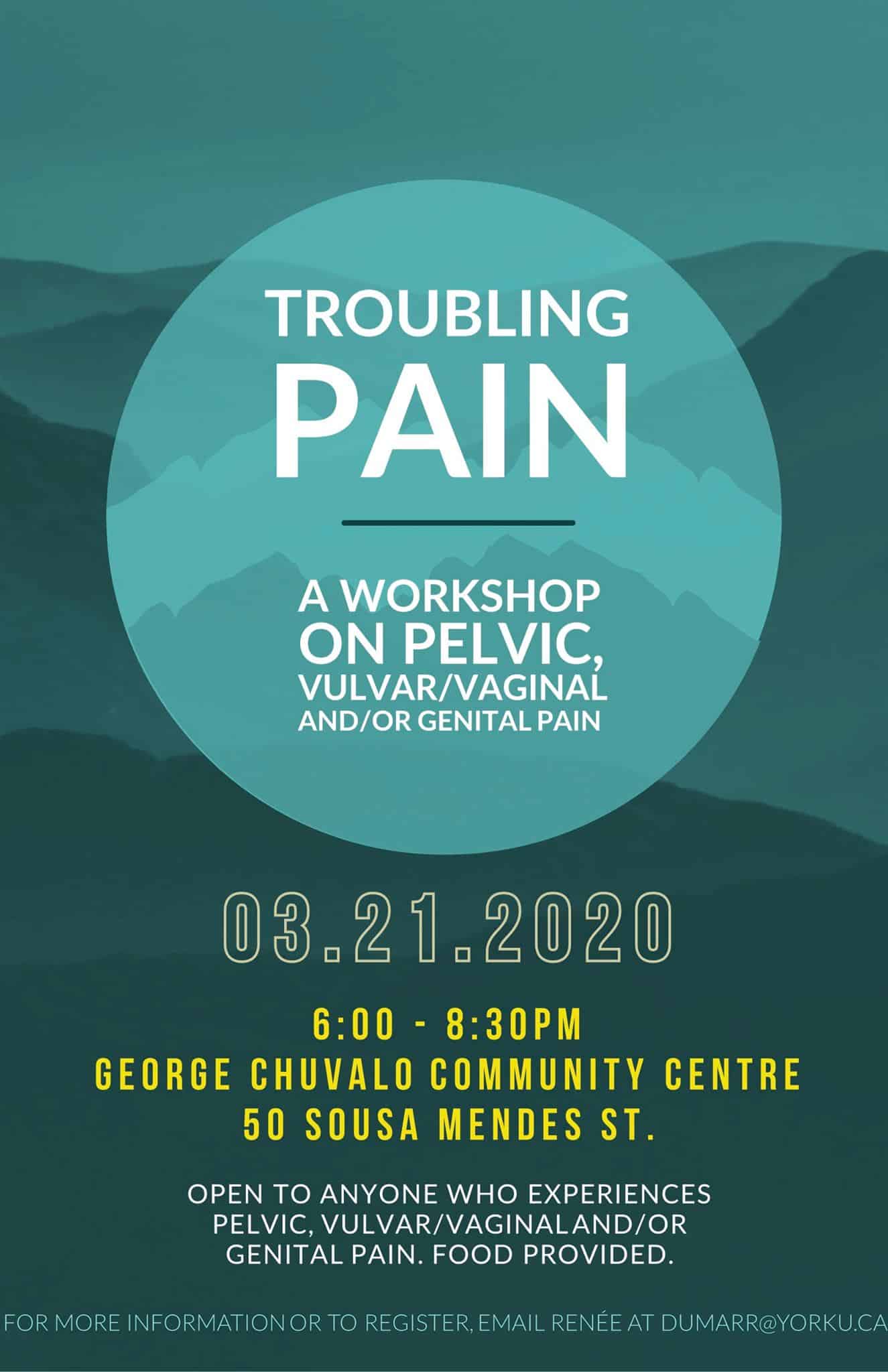Have you ever had pain and discomfort that was dismissed? I have. For the first year after my son was born, it hurt to have sex. I spoke to my doctor several times about it, but the response was always, “You had a baby, it takes time to heal.” But should it have taken that long? And was there anything I could have done to ease the discomfort? YES! But those options weren’t presented to me, and at the time, I was an overwhelmed sleep-deprived new mom—I didn’t have the energy to dig further. I accepted my persistent pain as ‘normal’.
My story is not uncommon. People’s pain being trivialized is an age-old issue, which is why I was glad to see that a workshop focused on “troubling pelvic, vulvar/vaginal, and genital pain” was an actual event happening in Toronto. I know a workshop like this would have greatly helped me six years ago when my issues were being ignored.
“The focus of this workshop is not to explore medical solutions to bodily pain, but to provide a space to discuss how pain is experienced and understood in relation to commonly held beliefs about gender, sexuality, race, class, illness and disability. We also hope to support participants in imagining, sharing, and discussing the possibilities and challenges related to collectively producing new, alternative, and/or supportive understandings of pelvic, vulvar/vaginal, and/or genital pain,” says Renee Dumaresque, who is co-facilitating the workshop with Eileen Holowka.
Both Dumaresque and Holowka are PhD students exploring the subject of pain. Dumaresque’s research is informed by their experience with chronic vulvar pain, also known as vulvodynia, which they think about in relation to race, colonization, gender, madness, and other forms of power. Holowka lives with endometriosis and chronic pelvic pain. Her research looks at how and why folks with endometriosis use social media for support, knowledge-sharing, and other purposes.
So, who is this workshop for? The event description reads that it’s “open to all people who experience pelvic, vulvar/vaginal and genital pain and is informed by an intersectional, queer and trans* affirming approach. Participation does not require a diagnosis of any kind. Some of the words that people might identify with, however, are endometriosis, vulvodynia, vaginismus, chronic genital pain, interstitial cystitis, chronic bladder pain, painful menstruation/periods, myofascial pelvic pain, irritable bowel syndrome, uterine fibroids, amongst many others.” Amazing. What a beautiful thing, to create a space so people can share their painful truths freely, without judgement or shame.
March 21, 2020 / 6:00-8:30PM at George Chuvalo Community Centre. More details here.



 Follow Us On Instagram
Follow Us On Instagram
